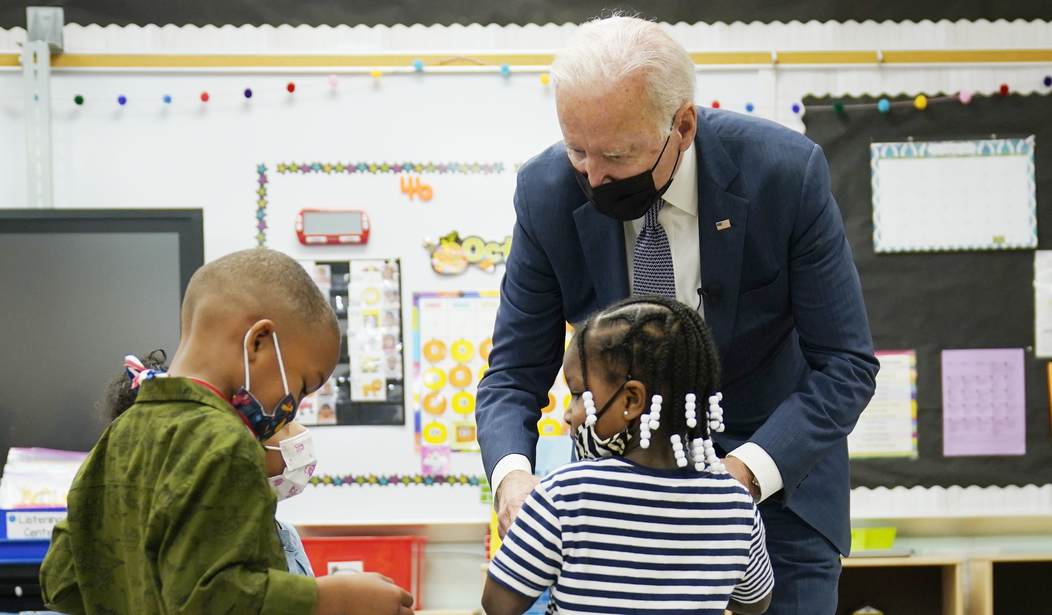The most extensive report yet on the impact on children’s learning from school shutdowns during the pandemic shows that kids lost one-third of a year of learning. But it’s worse than that. Not only did children lose that third of a year of learning, but the study also indicates that attempting to reverse learning deficits that the shutdowns created has not only been unsuccessful but the deficits have also remained “incredibly stable.”
The study was published in Nature Human Behaviour, and it “compiled the results of 42 studies examining pandemic learning loss from 15 countries around the globe,” according to Reason.com.
School districts took several approaches to close the learning deficit — none of them worked despite assurances from teachers’ unions that remote learning wouldn’t impact a child’s educational development.
The deficits are particularly pronounced in mathematics, which may be because “learning progress in mathematics is more dependent on formal instruction than in reading.” As the analysis notes, “This might be due to parents being better equipped to help their children with reading, and children advancing their reading skills (but not their maths skills) when reading for enjoyment outside of school.”
Learning loss was more pronounced in middle-income countries like Mexico and South Africa. Studies from low-income countries were excluded because of unreliable data, but the study’s authors speculate that for poor countries, the deficits were even larger.
Related: The COVID-19 Pandemic Was a ‘Catastrophe for Human Freedom’
The United States did not fare very well either.
Even in a high-income country like the United States, the magnitude of learning loss remained steep. One study included in the analysis found that the average public school student in third grade through eighth grade lost half a year of math learning and a quarter of a year in reading.
Two countries — Sweden and Denmark — showed little loss in learning during the pandemic. This shouldn’t be surprising because Sweden never shut down its primary schools in its efforts to create “herd immunity.” And Denmark had the most “reliable digital infrastructure with Denmark being one of the absolute top-scorers in digital skills, broadband connectivity, and digital public services in Europe,” according to the study.
The future does not look bright for American kids.
Currently, the picture for American children is bleak. Without immediate intervention, “learning loss will be the longest-lasting and most inequitable legacy of the pandemic,” Thomas Kane, a Harvard economist who reviewed the analysis, told the New York Times. According to the Hoover Institution, U.S. children attending school during the pandemic are likely to experience a 5 percent reduction in their lifetime earning potential—a number that rises to as high as 9 percent in some states.
“The COVID-19 learning deficit is likely to affect children’s life chances through their education and labour market prospects,” the analysis’ authors write. “At the societal level, it can have important implications for growth, prosperity and social cohesion.”
There may have been a rationale for closing schools during the first months of the pandemic when there was a knowledge deficit about what we were facing as far as the severity of COVID-19 and its health impact on children. But by the beginning of the 2020 school year in September, it was clear that COVID-19 was not a big threat to children. Gov. Ron DeSantis opened Florida’s schools in August.
It was the teachers’ unions that kept the classroom doors shut and kids kept at home. In addition to the learning deficit, far more children are suffering from developmental disorders and have other mental health issues from being so isolated during the pandemic.
That’s the legacy of the teachers’ union’s power when exercised so catastrophically.










Join the conversation as a VIP Member